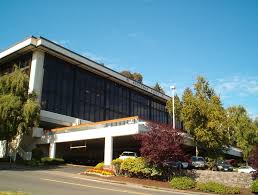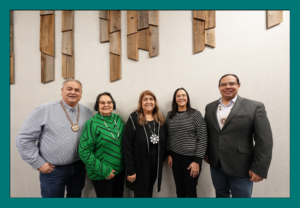In 1972, several Northwest tribal members recognized the need to exercise control over the design and development of health care delivery systems in their local communities. Today, every federally recognized tribe in Oregon, Washington, and Idaho serves as a Delegate to NPAIHB. Many Delegates also serve on their tribe’s council.
The NPAIHB Executive Committee is comprised of a Chair, Vice Chair, Secretary, Treasurer, and Sergeant-at-Arms. The Executive Committee approves the Quarterly Board Meeting agendas, approves Executive Committee resolutions, develops and refers policy issues to the entire delegation for approval, reviews and monitors NPAIHB financial matters, represents NPAIHB at regional and national meetings, and is the direct supervisor to the Executive Director.

 Broadway Office
Broadway Office